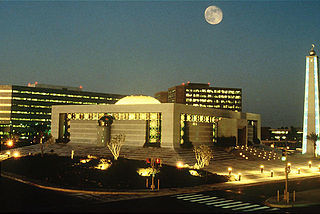
Saudi Arabian Oil Co. has asked consultants to bid for a role advising it on which assets to privatize and how to execute a potential share sale as the kingdom presses ahead with plans for an initial public offering, people with knowledge of the matter said.
Aramco, as the world’s largest crude exporter is known, sent the request for proposals to international strategy firms about three weeks ago to study scenarios for an initial public offering, including how long the process might take and which assets or joint ventures to include, the people said, asking not to be named as the details aren’t public. Results of the study will be submitted to the government during the first half, according to the people.
Options being considered include selling shares in the parent company, placing Aramco’s domestic and overseas downstream joint ventures into a holding company and selling shares in that, or grouping together the companies joint ventures and smaller refineries, one of the people said. Request for proposals haven’t been sent to banks yet, the people said.
Deputy Crown Prince Mohammed bin Salman surprised investors and analysts in January by saying that the kingdom was considering an IPO as part of a broader package of economic reforms. The company later confirmed that options included a full initial public offering or the listing of some of its subsidiaries. Bringing in investors would strengthen the company’s focus on long-term growth and the prudent management of its reserves, according to a statement from the company in January.
Saudi Aramco didn’t immediately return calls for comment placed outside business hours.
Aramco currently pumps all of Saudi Arabia’s crude oil, with production at 10.2 million barrels a day in February. With relatively opaque operations, the company could fetch a value of anywhere from $1 trillion to $10 trillion, potentially making it the most valuable company in the world, according to Jason Tuvey, an economist and researcher at Capital Economics.
The idea is being considered as OPEC’s biggest oil producer responds to a crash in crude prices and the government cuts spending, delays projects, taps foreign reserves and issues debt as it takes on a budget deficit expected to reach about 17.8 percent of economic output this year, according to Riyadh-based Jadwa Investment Co.
